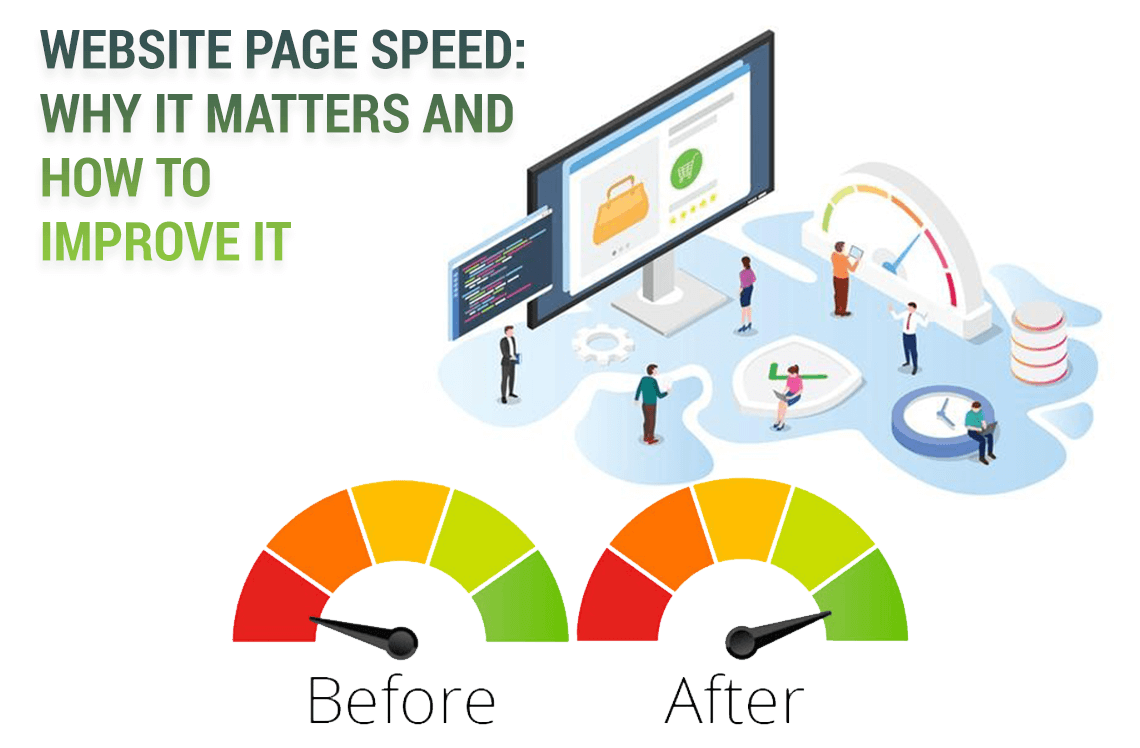Website page speed: why it matters and how to improve it
Since the year 2010, Google has considered page speed as a basic criterion to provide the best search ranking on the web. Thus, speed is a vital part of the search ranking diet for businesses today. Not only this, astounding on-page user experience is another requirement.
Both are necessary for the lead generation task. Thus, attention needs to be given to the website page speed. Therefore, we will talk about the importance of web page speed and the ways to enhance it.How many times do you check analytics? Do you know that you can improve it with effective SEO practices? SEO and page speed are linked to each other.
If your business is into these practices, it will support the search engine crawling with the ideal page speed. Aspects that affect page speed are uncompressed files or images and sever that will be discussed further in this blog.
Definition
Let us first understand page speed. In simple terms, website page speed gives a measurement of how faster the web content is loading on a web page. Now, don't get confused with the browser speed; it is completely different. Page speed is when you open a website say xyz.com and you navigate to the "About Us" page. So, how much time the selected page takes to appear on the screen is page speed.
Need for Businesses in 2021
Now that the definition and SEO practice is clear, the next step is to know the importance of page speed for businesses. Emerging technologies and the ever-changing demands of customers are making businesses adopt a new business model to provide faster services to customers. Page load speed is one such tool that contributes to the increased productivity of a business.
Example: Have you ever been to a retail grocery shop? If there is a crowd, some of the people will not wait to be in the queue. This is how the retailer loses potential customers who might or might not purchase maximum items. The same situation is with the website visitors, they want a quick response from the site.
If you don't want to experience a situation like this, follow these ways to enhance page loading speed.
Ways to improve page speed
Reduce Code
Many programming languages allow developers to write applications in fewer lines of code. Developers use such languages to reduce the page load speed of a website. Therefore, you need to ensure that your business website does not have unworkable code that increases its page load speed.
Image Optimization
PNG and JPEG are the two most common image format that is the right format for the browsers. 1500 and 2500 pixels is the required image size for a better search engine ranking. A compressed image will make the page load faster than it loads with too many, high-resolution-based images. Don't worry, this will not affect the image quality.
Compressed Files
As you are optimizing images, the same you have to do with your markup language (CSS, HTML, Javascript). The file size must be around 150 bytes to allow users to easily access the website. The supreme way is to reduce the code from these files.
Web Hosting
Upgrading your existing hosting package can improve the page speed of the website. It has a simple logic that the hosting that you have selected is already been accessed by several other users or businesses on the web. If you buy a premium web hosting package then it will beneficial for business growth.
Set a short path for Navigation
Consider a scenario where you are traveling somewhere. You have lost your way and you want to take help from the local people. Would you like to go through a long route? Of course not, you want to reach your destination quickly so you will choose a short path. The same is the case with your customers. They want to search for a service with a shorter navigation link.
Conclusion
For brand reputation, credibility, keyword ranking, lead generation in all these aspects of digital marketing, page load speed matters a lot. Pages with more than 3 seconds page speed will likely get fewer website visitors (around 7%) than a website that has 1- or 2-seconds page speed.

